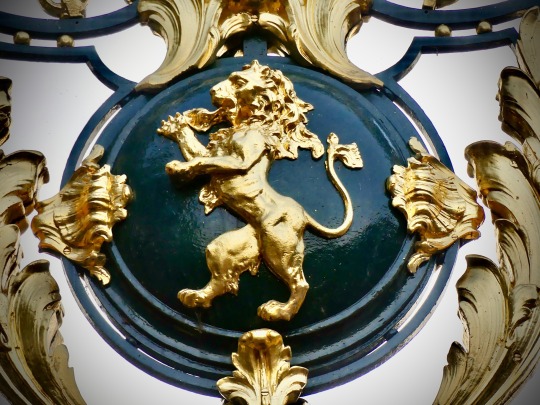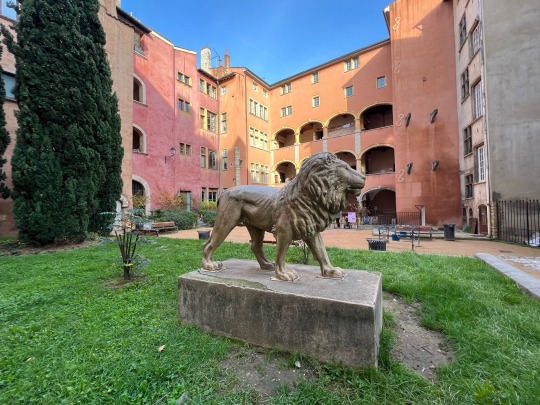#Momoro
Text
The difference in treatment between the Indulgents and the Cordeliers or Hébertistes
I have an opinion that will seem unpopular, no worries I am open to any criticism or to being corrected in the event of an error so do not hesitate to correct me. I have much more sympathy for the Hébertist faction, the exaggerators or the Cordeliers than that of Danton's Indulgents. Indeed if we exclude the Hebert case who is an indefensible man, mediocre in my eyes (I don't think I need to explain why) this is not the case for so many others. I mean Ronsin was a competent and honest administrator.
Despite his mysoginism (horribly reprehensible, just look at the speech he gave concerning the execution of Gouges and Manon Roland) Chaumette could be as competent as procureur syndicale de Paris and had also generous ideas (such as banning whipping in schools, equalization of funeral rites for all, protective measures for the elderly and hospitalized).
One of the most impressive cases is Momoro. Even the historian Mathiez, who nevertheless has little sympathy for the revolutionaries who were against the Committee of Public Safety in the spring of 1794, had practically nothing but praise for Momoro. He voluntarily lived in poverty and when he was tried he said he had given everything for the revolution. It was true in my eyes.
Of course I understand in a certain way the repression exercised by the Committee of Public Safety (more precisely the Convention since an arrest cannot be made without its agreement, it is not a dictatorship either) when Cordeliers wanted to launch a new insurrection against the Convention ( like Momoro for example). The fact of wanting to persecute the priests did not help, not to mention the fact that they wanted stronger repression of the enemies at the risk of making the Revolution even harsher. But when we analyze, I can understand where come frome their anger. Their hatred about religion was due to the fact that not long ago, a lot of religious fanatics infantilized the people, constantly made prohibitions against them (we must NEVER accept infantilization or loss of free will for religious reasons) and atrocious repressions without counting the their wealth that they monopolized (in terms of absurd repression there is nothing but to see the Calas affair, or that of the case of Chevalier de la Barre etc…), even if there were a lot of priest and believers weren't like that . Although the Cordeliers were wrong to respond to religious intolerance by intolerance, I can agree. The same goes for the Terror. At that time France was threatened by enemies from within and without and quite a few of their enemies carried out atrocious tortures (although rotten people like Fouché, Carrier, were not to be outdone in atrocities to the point that the Committee of Public Safety recalled them immediately). Prices were increasing because of the war, so without excusing them once again I can understand their minds when they demanded ever greater repression of the Terror (even if once again it was a serious error ,a mistake and even a fault).
Let's compare to the indulgent (or Dantonists) who are caught up in financial scandals (according to for a lot of historians like Jean Marc Schiappa). Danton moved only because of the financial scandals which were beginning to erupt and did not dare to attack head-on in this period of factional clashes, he let his friends do so. Moreover, according to certain historians like Decaux if I am not mistaken, he only came back against the Hebertists because they attacked them (and they did not only have them as enemies). He is not a clean character. Let's not talk about Fabre d'Eglantine. For Desmoulins I have an unpopular opinion of him. I find him very overrated and no matter how much I tried to appreciate his historical figure (by reading the very good biography of Leuwers or the book by Joseph Andras) I cannot. I don't think that despite the fact that he is very cultured, a man who rightly think that women must have the right of vote and even a republican before his time, he is not capable of assuming an important position unlike Saint Just or Ronsin who he made fun of. And worst of all I find him hypocritical, he who demanded clemency applauded the execution of the Hebertists following a parody of justice (yes I like the Montagnards of this period but this kind of thing should never be tolerated) . He didn't say anything when the wives of Momoro and Hebert were arrested which was very serious (afterwards I don't know well if they were arrested at the same time as Lucile Desmoulins), but he didn't realize that it was going well back in his face.
The Dantonists were irresponsible in my eyes. I completely agree that it was necessary to examine each prisoner on a case-by-case basis because there were surely a large number who had nothing to do there by creating as many commissions as possible as quickly as possible and getting down to business. job right away because prison is a horrible place, even more so for innocent people. But releasing everyone without distinction immediately would have been dangerous because there were also dangerous counter-revolutionaries or spies. I mean have they forgotten that the fall of Toulon to the English was due to betrayal? The betrayal of Dumouriez, the assassinations of some deputies, etc…
Where did this idea of making peace with foreign armies still occupying France come from when the French army was beginning to be victorious? Opposing a war of conquest I completely agree, but allowing one's own territory to be annexed is something else.
And how dangerous would it be to leave corrupt people like Danton in power. Sooner or later, he could perhaps have given in to blackmail in view of the evidence of corruption that contemporaries have today, which would have been very dangerous for France.
As a result, I never understood why the “good” indulgent ones were portrayed against the “bad” Cordeliers and Hébertists.
Whatever happens for all these factions, no matter my great admiration for revolutionaries like Le Bas, Saint Just, Couthon, the fact that I am sorry like many people that Robespierre is demonized, the fact that they allowed a parody of justice against these factions is an unforgivable fault and to have allowed the execution of Marie Françoise Goupil and Lucile Desmoulins among others to consolidate this parody of justice is unacceptable. Even if I understand their states of mind because they could not afford to lose especially in this period against these different factions and contrary to what the Thermidorians put forward, the majority of the Convention was just as guilty as them, there is no excuse for this kind of behavior.
Did Saint Just realize this when he said that the Revolution was frozen (even he spoke more about the consequences of this repression and that the revolution is weakened on this point) ? It would later fall on them and Elisabeth Le Bas was threatened with being guillotined for having been Le Bas' wife (some wanted to force her into a marriage with one of the Termidorians). If they had not allowed the fate of Goupil or Lucile Desmoulins earlier perhaps it would have been more difficult for the Thermidorians to threaten her.
For more information in the form of a movie , I invite you to see" Saint Just ou la Force des Choses" and " la Camera explore le temps Danton, la terreur et la vertue" in English sub. These are good movies about this period.
And you what do you think ?
#french revolution#Terror#georges danton#Camille Desmoulins#Ronsin#Momoro#Cordeliers#Indulgents#History#saint just#couthon#robespierre#lucile desmoulins#Hebert#Chaumette#joseph fouché#Carrier
49 notes
·
View notes
Text




Momoro
"Relieving holiday coffee time."
ももろ
「ホッとする休日のコーヒータイム」
165 notes
·
View notes
Text
Contemporary descriptions of the hébertist execution compilation
The joy of the people was universal at seeing the conspirators taken to the scaffold. There were the same demonstrations of joy everywhere; a sansculotte jumped up and said: “I would light up my windows this evening, if candles were not so rare.” In the evening, in all the groups and cafes, people talked about the death of these conspirators; the story of their last moments was the only subject of conversation. It was said in several places that Hébert had denounced around forty deputies. It was time, they added, that this conspiracy was discovered, because it was believed in several departments that Paris was under fire. […] According to the comments made on the Place de la Révolution, during the appearance of the conspirators on the scaffold, one noticed that there were people placed to sow trouble. One woman was beaten by another for having made some comment. While the 19 conspirators were being guillotined, the people remained silent; but when Hébert’s turn came, a swarm of hats appeared, and everyone shouted: “Long live the Republic! This is a great lesson for those who are consumed by ambition; the intriguers have done well; the committees of public safety and general security will manage to discover them, and ça ira!”
Tableaux de la Révolution française publiés sur les papiers inédits (1869) by Adolphe Schmidt, volume 2, page 186. ”Situation in Paris 4 Germinal Year 2” (March 24 1794).
The events of yesterday, that is to say the judgment of the conspirators, their journey from the Palace to the Place de la Révolution and their execution, have entirely absorbed the attention and feelings of the people. Everyone wanted to at least see them pass so that they could judge the impression made on their wicked souls by the sight of an immense people, outraged by their crime, and the knowledge of the imminent death they were going to suffer. The crowd of curious people who were on their way or who witnessed their execution was innumerable. [...] Two opposing feelings, indignation against the guilty and joy at seeing the Republic saved by their death, animated all the spectators. One tried to read the faces of the condemned to enjoy, in a way, the internal pain from which they suffered: it was a kind of revenge that they took pleasure in obtaining. The sans-culottes were especially angry with Hébert and insulted him. “He’s damn angry,” said one, “we broke all his stoves (fourneaux).” “No,” said another, “he is very happy to see that the real aristocrats are going to fall under the guillotine.” Others carried stoves? (fourneaux) and pipes and raised them in the air so that they could strike Father Duchesne's eyes. Regardless, this wretch could not pay any attention to what was happening around him; the horror of his situation appalled him; he had reproached Custine for dying as a coward, and he showed no less pusillanimity than him. Momoro put up, as they say, a brave face against bad luck, he pretended to be confident, talked to his neighbors and laughed a wicked laugh. [...] Cloots appeared calm, Vincent lost, Ancart and Ronsin furious and Hébert overwhelmed. The latter was the star of the show, he appeared last [on the scaffold].
Report by the police spy Grisel, March 25 1794, cited in La Liberté ou la Mort: mourir en député (2015) by Michel Biard.
On D-Day, March 24, 1794, an “innumerable crowd” impatiently awaited the execution of Father Duchesne and his accomplices: “Advancing from the place of execution of Paris, one encountered waves of citizens on their way there; everything resounded with the cry of “Father Duchesne to the guillotine!” and in this respect the children acted as peddlers.” Another agent remarks that “in the streets, from the Palace to the Place de la Révolution, the crowds of people were so great that one could barely pass through.” The police estimate (already!) claimed that “perhaps four hundred thousand souls witnesses to this execution.” […] If the legend claiming that Hébert fainted in the tumbril seems false, all reports corroborate on the other hand the moral and physical collapse which this great sermonizer presented: […] “It was noticed that Ronsin seemed the least frightened by his execution, that Anacharsis Cloots had retained great composure, but that Hébert and the others bore on their faces the signs of the greatest consternation;” [Another report states that]: “Of the nineteen culprits dragged to execution, Hébert was the one who presented the saddest and most dismayed face.” Taken from the Palace to the Place de la Révolution amid cries of joy and insults (“Everywhere they passed one shouted “Long live the Republic!,” and threw hats in the air and everyone said some epithet to them, especially to Hébert.”), Father Duchesne was not yet at the end of his troubles. To make the feast complete, a cruel staging allowed him to meditate on his fate: “Upon his arrival on the Place de la Révolution, he and his accomplices were greeted by boos and murmurs of indignation. With each head that fell, the people took revenge again with the cry of “Long live the Republic!” while throwing their hats in the air. Hébert was saved for last, and the executioners, after putting his head through the fatal window, responded to the wish that the people had expressed to condemn this great conspirator to a punishment less gentle than the guillotine, by holding the suspended blade for several seconds on his criminal neck, and throwing, during this time, their victorious hats around him and attacking him with poignant cries of ”Long live this Republic that he had wanted to destroy.” As can be seem, one knew how to have fun in those days. However, as soon as the affair was completed, the agents noted contrasting reactions among the people: “In all public places, the aristocrats and the moderates rejoiced at this execution and affected a lot of patriotism. The patriots also rejoiced, but they observed one another.” [Another report states] “I visited different cabarets near the Gros Caillou, near the Military School. They talked only about Father Duchesne, about whom a thousand stories were made with the intention to bless the Committee of Public Safety for having discovered such a betrayal. I found the little people cheerful”; [Another report states]: “The walks are everywhere full of people and everywhere one stays and asks: “Did you go to see Hébert yesterday?” One answers “yes”. All the faces seem happy.” [Another report states]: “Since Hébert’s death, I have noticed that, in cafés, men who talked a lot no longer say anything.” This is because the execution of Hébert and his supporters, although it purged the Mountain of its extremists, nonetheless shook the people’s confidence in their leaders. Who would believe if even the most ardent patriots could suddenly become traitors? At least one thing is certain, that is that beyond the unconscious dismay which struck the people after the execution, the great cowardice which Father Duchesne demonstrated before the guillotine ended up destroying him in the eyes of everyone: “After the execution, everyone was talking about the conspirators. They said: “They died like suckers”; others said: “We would have thought that Hébert would have shown more courage, but he died as a good-for-nothing.”
Series of police reports found in Paris pendant la Terreur (1962) by Pierre Caron, cited in this blog post.
The execution took place in the afternoon around 5 o'clock, at the Place de la Révolution. A prodigious crowd of citizens filled all the streets and squares through which they passed. Repeated cries of long live the Republic and applause were heard everywhere. These testimonies of the indignation of the People against men who had just so eminently compromised the salvation of the Fatherland, were proportionate to the extreme confidence they had in the art of surprising them; and the public satisfaction whose feeling was mixed with this deep indignation was a new proof of the love of the citizens for the Republic saved by the punishment of these great culprits. Thus perishes anyone who dares to attempt the re-establishment of tyranny!
Gazette Nationale ou Moniteur Universel, number 185 (March 25 1794)
It was 18 of them who suffered the death penalty due to their crimes... It was Father Duchesne, this scoundrel, who was cursed by all the people. If he had been susceptible to remorse, he would have died of shame before his arrival, in front of Madame Guillotine... He was the last to be guillotined, each of the closest spectators continued to reproach him for his villainy...
Letter written by the Convention deputy Ayral Bernard, March 26 1794
Hébert, Ronsin, Vincent, and the other conspiracy defendants whose names and qualities we reported in previous issues, were sentenced to death by the revolutionary tribunal. Only one was acquitted; Laboureau: he was immediately set free; the president of the tribunal embraced him and made him sit next to him: the room resounded with the liveliest applause. The other defendants said nothing when they were sentenced; the Prussian Cloots appealed to the human race, of which we know that he had made himself the speaker. Ronsin wanted to say a few words, he was removed alongside the others. Femme Quetineau declared herself pregnant. Taken back to the Conciergerie, the condemned asked for half a septier of wine and a soup. Around four in the afternoon, they left on three tumbril to go to the execution. Never had an execution attracted such a considerable crowd of spectators; everywhere they passed, one clapped hands, tossed hats in the air, and shouted vive la république ! They seemed quite insensitive to the indignation that was brewing against them: arrived at the foot of the scaffold, they all embraced each other. Hébert, known as Father Duchesne, was the last to be guillotined; his head was shown to the people, and this spectacle provoked clapping of hands and universal cries of vive la république !
Annales Patriotiques et Litteraires de la France, et Affaires Politiques de l’Europe, number 369 (March 26 1794)
The republic has once again been saved: 19 leaders of the conspiracy hatched for its ruin were sentenced to death today, 4 germinal, at half past twelve. The flattering sword of the law struck their guilty heads: these traitors marched towards the scaffold with all the audacity of crime; some laughed, others raised their shoulders: Father Duchène appeared to be neither in great joy nor in great anger; the people applauded and stood in crowds in the places through which the procession was to pass. A lot of cavalry and infantry preceded, accompanied and followed the tumbrils carrying the conspirators: but armed force became useless, because joy was universal.
Le Courier Belgique, number 39 (March 31 1794)
Here is an anecdote which can serve to make better known the eighteen conspirators whom the sword of the law has struck down. On the day of their execution, several heads had already fallen when General Laumur's turn had come. Ronsin and Vincent looked at him at the scaffold and said to Hébert: ”without the clumsiness of this j... f... we would have succeeded.” They were alluding to the indiscretion of Laumur, who would tell anyone who would listen that the Convention had to be destroyed.
Suite de Journal de Perlet, number 555 (March 31 1794)
My father told me that only once, during the Revolution, he found himself stuck in the crowd, without being able to move forward or backward, as the fatal tumbril passed. It was the one who carried the Hébertists. Cloots, placed at one end, said to the spectators: “My friends, please do not confuse me with these rascals.”
Mémoires sur Carnot par son fils (1861) volume 1, page 366.
-
Previous parts of this totally family friendly series:
Contemporary descriptions of the dantonist execution compilation
Contemporary descriptions of the robespierrist execution compilation
#happy 230th deathday guys!!#french revolution#frev#frev compilation#hébert#momoro#no one likes hébert…#like jesus they REALLY hated him
22 notes
·
View notes
Text
Cult of Reason
I am *desperately* in search for primary sources about the Cult/Festival of Reason. This could be pamphlets, prints, speeches… etc.
Thank you!
45 notes
·
View notes
Note
for the ask game: 1, 2, 24, 25
1. Who is your favourite historical person?
Answered here.
2. What is your country most famous for in history?
The Schleswig-Holstein's attack on Westerplatte, I should think. And subsequent events.
24. Most underrated historical figure?
Echoing my choice of favorites, so: Dembowski and Saint-Just. Far from niche but not exactly inducted into the pantheon of pop-history, either. Toussaint-L'Ouverture, Momoro, Plater, Galois, Żmichowska, Hanriot...
25. Most overrated historical figure in your opinion?
Bonaparte, Mickiewicz and practically every European "explorer".
3 notes
·
View notes
Text










Lyon
Fondé en -43 par les Romains sur un site que les Gaulois occupent depuis -600 environ. D’après la légende, les fondateurs mythiques du site celtique sont le roi Atepomaros et le druide Momoros. La ville romaine, elle, se développe rapidement et devient capitale de la Gaule en -27. A son apogée, au Deuxième Siècle (années 100), la ville joue un rôle important de carrefour commercial (or et vin, entre autres) et artisanal dans l’Empire et constitue la fierté des empereurs, qui y séjourne régulièrement. Elle régresse en même temps que l’Empire romain (à partir des années 300).
C’est Charlemagne (années 700-800) qui rend à Lyon un peu de sa vitalité, principalement sur le plan du prestige religieux. Mais c’est pendant la Renaissance (années 1500) que Lyon connaît son second âge d’or. Elle devient la capitale économique de la France et la capitale financière de l’Europe. Elle devient aussi un grand centre culturel. Grâce aux foires annuelles qui rassemblent des gens de toutes l’Europe, la ville gagne le surnom de Myrelingues qui signifie « Myriades de langues ». François 1er envisage même d’y transférer sa capitale.
Pendant la Révolution (1793), les jacobins de Paris assassinent des milliers de Lyonnais et tentent de rayer Lyon de la carte. Mais Napoléon Bonaparte (années 1800) passe par Lyon, la rebâtit et lui rend son lustre d’antan en dopant l’industrie de la soie, spécialité locale qui occupera la moitié de la population de la ville et qui en fera la capitale européenne. Napoléon se lie de passion pour Lyon et ses habitants. Lui aussi envisage d’y transférer sa capitale.
Durant la Seconde Guerre mondiale (1939-1945), Lyon est le centre de la Résistance : Charles de Gaulle la qualifie de « capitale de la Résistance ». Aujourd’hui, Lyon continue son ascension vers un probable nouvel âge d’or.
#lyon#photogram#photographe#photography#my photos#photos#photo#francetourisme#francephotography#france#gastronomie
7 notes
·
View notes
Text
Its best drop from rtfkt, i claimed one! @momoro @GammelSeng @DJH_Gamer @MattMcCherry @elsableda @AstrofishGames @immerxing @CC_TheMovie @soosven https://t.co/TPW1iuI5uh
Its best drop from rtfkt, i claimed one! @momoro @GammelSeng @DJH_Gamer @MattMcCherry @elsableda @AstrofishGames @immerxing @CC_TheMovie @soosven https://t.co/TPW1iuI5uh
— HoodsUp (@HoodsUpBrand) Dec 7, 2022
from Twitter https://twitter.com/HoodsUpBrand
December 07, 2022 at 06:59PM
via IFTTT
0 notes
Text
Figoj (Esperanta versio)

Ĉi tiu estas speciala eniro kiu servos por, unuflanke, festi ke Dara, mia koramikino, turnas 26 jaroj, kaj aliflanke, ni renkontas 6 rilatmonatojn.
Mi trovis tre agrabla la rakonton de Dara, sed fine, kiel ĝi aperas en la komika, ŝi finiĝis dirante ke la figoj ne okazas en tiu sezono hahaha. Ĉi tiu faris ĝin pli bela, ĉu gravas se ekzistis figojn vera aŭ ne en ŝia naskiĝtago?
Mi sciis ke mi desegnos ke epizodo en iu momento kaj ĉi ŝajnis la plej taŭga. Estas omaĝo al ŝia historio kaj la vojo ke, ne komprenante kiom, alportis nin al ĉi tiu loko.
Dara Feliĉan Naskiĝtagon!
Dankon pro ĉio! :)
2 notes
·
View notes
Photo

Hanna-Fanart
The best art I could do stuck with a migraine : [ but I had fun.
2 notes
·
View notes
Text
Ken ga Kimi: Mahoroba no Sora (まほろばの空) Lyrics
Kanji, romaji and English translation for Mahoroba no Sora by Tsuzuramaru and Kei

(kanji source)
時に流されぬ君は ふとした笑みを寄せ
花衣のなか 秘めた決意だけ
抑え切れないよ この想い 迷う度
積み重なるのさ 頁を 捲れば 色鮮やかに、ふたり
愛してるとは、うまく綴れず 言葉にならない 言葉たち
抱き締め、見つめ 感じた吐息 まほろばの君へと
還るべき 空よ
風に薫る茜色
切なくて、掴めないとしても
僕の鼓動は覚えてる
震えてた 剣の先 信じてた
笑い合えるよ、どんな時でも 涙にならない 涙たち
冷たい雨に 飲み込まれずに 掌の温もり、此��で
愛してるとは、うまく綴れず 言葉にならない 言葉たち
抱き締め、見つめ 感じた吐息 まほろばの君へと
還るべき 空よ
Romaji
toki ni nagasarenu kimi wa futoshita emi wo yose
hanagoromo no naka himeta ketsui dake
osaekirenai yo kono omoi mayou tabi
tsumikasanaru no sa peeji wo makureba iroaayaka ni, futari
aishiteru to wa umaku tsuzurezu kotoba ni naranai kotobatachi
dakishime mitsume kanjita toiki mahoroba no kimi e to
kaeru beki sora yo
kaze ni kaoru akaneiro
setsunakute, tsukamenai to shitemo
boku no kodou wa oboeteru
furueteta ken no saki shinjiteta
waraiaeru yo, donna toki demo namida ni naranai namidatachi
tsumetai ame ni nomikomarezu ni tenohira no nukumori, koko de
aishiteru to wa umaku tsuzurezu kotoba ni naranai kotobatachi
dakishime mitsume kanjita toiki mahoroba no kimi e to
kaeru beki sora yo
English
You, who doesn't go away with time, come close to me with a casual smile
With only determination hidden inside that flower garment
I can't control these feelings, every time I lose my way
They only accumulate more... When I turn the page, the two of us are vividly there
I can't say "I love you" very well, my words don't come out as words
Embracing, looking at you, and feeling your breath - To you, who's my wonderful home,
I must go back, dear sky
The madder red that smells sweet in the wind
Even if it's too painful for me to grab it
My palpitations still remember it
I believed in the tip of my trembling sword
We can laugh together at all times, my tears don't come out as tears
Without being swallowed by the cold rain, the warmth of your hands is right here
I can't say "I love you" very well, my words don't come out as words
Embracing, looking at you, and feeling your breath - To you, who's my wonderful home,
I must go back, dear sky
#ken ga kimi#kgk#mahoroba no sora#momoro tsuzuri#tsuzuramaru#minegishi kei#kenn#ono yuki#yuki ono#rejet#request
31 notes
·
View notes
Text
#My favorite is Momoro#On my top three of favorite revolutionnary#Even if I admit his bad side#Dislike hightly Hebert but everyone has their own tastes#frev#french revolution#hébert jacques rené#Ronsin#Chaumette#momoro#cordeliers
8 notes
·
View notes
Text

Momoro "My fascinating world of cuteness."
ももろ絵本作家、イラストレーター「私が魅せる可愛いの世界」
16 notes
·
View notes
Note
How was Danton responsible for the 10th of August insurrection?
According to L’école révolutionnaire des Cordeliers (published both here and as chapter three of Danton: le mythe et l’histoire (2016)) by Raymonde Monnier, ”on August 10, Danton is a key person of the situation created through the insurrection.” As evidence for this, Monnier first and foremost lifts the following decree from the section of Théâtre−Français, signed by Danton on July 30:
The section of Théâtre-Français declares […] that the fatherland being in danger, all French men are called upon to defend it; that there no longer exists what the aristocrats called passive citizens, that those who carried this unjust title are called as much to the service of the national guard as to the sections and the primary assemblies to deliberate there.
Signed: Danton, president.
Anaxagoras Chaumette, vice-president.
Momoro, secretary.
According to the memoirs of Chaumette, Danton was still in Paris on August 5. One day later, we do however find him in Arcis, signing a decree granting his mother a house, seemingly so she had something to fall back on was he to perish during the insurrection.
As for Danton’s role in the insurrection itself, he had the following to say about it during his trial held one and a half year later:
I am accused of having retired to Arcis-sur-Aube at the time when the journée of August 10 was being planned. To this accusation, I respond that I declared at that time that either the French people would be victorious or I would be dead. I ask to bring forward as witness to this fact citizen Payen. […] Pétion, leaving the Commune, came to the Cordelier Club. He told us that the tocsin would ring at midnight and that the next day must be the tomb of tyranny; he told us that the attack on the royalists was planned for the night, but that he had arranged things in such a way that everything would be done in broad daylight and would be over by noon and that victory was assured for the patriots. As for me, I only left my section after recommending to notify me would anything new happen. I stayed in my section for twelve hours straight, and returned there the next day at nine o'clock. This is the shameful rest in which I indulged, according to the report.
Danton before the tribunal on April 3 1794, as reported in Bulletin du Tribunal Révolutionnaire
I had prepared August 10 and I went to Arcis, because Danton is a good son, to spend three days, say goodbye to my mother and settle my affairs, there are witnesses to it. After that, I was very much in evidence. I didn't go to bed. Although I was an official at the Commune I went to the Cordeliers. I told Minister Clavières, who came from the Commune, that we were going to start an insurrection. After having arranged all the operations and the moment of the attack, I lay down on the bed like a soldier, with orders to warn me. I left at one o'clock and went to the Commune which had become revolutionary. I issued the death warrant against Mandat who was in possession of an order to fire on the people. The mayor was arrested and I remained at the Commune following the advice of the patriots.
Notes de Topino Lebrun, juré au Tribunal révolutionnaire de Paris, sur le procès de Danton et sur Fouquier-Tinville (1875)
On December 12 1793, Lucile Desmoulins wrote a long description over what she had experienced during the night of the insurrection four months earlier, a description where Danton gets mentioned multiple times:
After dinner [on August 9] we all went to D(anton’s). Her mother was crying, she was sad, her father looked dazed. D(anton) was resolute. [Lucile then goes out with Danton’s wife and mother-in-law for a while]. When I returned to D(anton’s), I found madame R(obert) and many others there. D(anton) was restless. I ran to madame Robert, I said to her “will they ring the tocsin?” “Yes,” she told me, ”but tonight.” I listened to everything and did not say a word. Soon I saw everyone arming themselves. C(amille), my C(amille), arrived with a gun!… O God! I sank into the ground, hid myself with both my hands and started to cry. However, not wanting to show so much weakness and say aloud to C(amille) that I did not want him to get involved in all this, I waited for a moment when I could speak to him alone, and I told him all my fears. He reassured me by telling me he would not leave D(anton’s) side. I have since found out that he exposed himself. […] No one in the street, everyone had gone home. Our patriots left. I sat down near a bed, overwhelmed, devastated, sometimes dozing off, and when I wanted to talk, I was nonsense. Madame D(anton) and R(obert) reasoned. D(anton) went to bed, he did not seem to be in a hurry. He hardly went out. Midnight was approaching. One came to search for him several times. Finally he left for the Commune. The toscin of the Cordeliers rang, it rang for a long time! Alone, bathed in tears, on my knees by the window, hidden in my handkerchief, I listened to the sound of that fatal bell. In vain they came to console me, this fatal night seemed to me to be the last! D(anton) came back. Madame Robert, who was very worried about her husband, who had gone to the Faubourg Saint-Antoine as a deputy through his section, ran to D(anton), who only gave her a very vague answer. He threw himself on his bed. One came several times to give us good and bad news. I thought I noticed that their plan was to go to the Tuileries, Sobbing, I told them I thought I was going to faint… In vain did madame Robert ask for news of her husband, no one gave her any. She thought he was marching with the faubourg. “Yes,” she said to me, “if he perishes I will not survive him! But this D(anton) who remains in his bed, he, the rallying point, if my husband perishes I will be the woman to stab him!” Her eyes were rolling. From that moment on I never left her side. What did I know what could happen? To know what she was capable of… We thus passed the night in cruel agitations. C(amille) came back at 1 o’clock, he fell asleep on my shoulder. Mde R(obert) who was next to me seemed to be preparing to learn of her husband’s death. “No,” she told me, “I can’t stay here any longer! Madame D(anton) is unbearable to me, she seems to be calm, her husband does not want to expose himself!” […]
Another diarist who mentioned Danton’s role in the insurrection was Scottish physician and travel author John Moore:
It is not to be imagiened however that [the insurrection] originated in an instantaneous resolution of the various sections of Paris: all had been arranged by a junto of men, of which Danton was supposed to be a leading member, and of whom the electors of the sections were the tools.
A journal during a residence in France, from the beginning of August to the middle of December 1792 (1793) by John Moore. Diary entry August 22 1792.
Two other contemporaries who attributed a leading role to Danton, albait much longer after the fact than Louise Robert and John Moore, are Billaud-Varennes and Garat:
After June 20, everyone was making small hassles at the castle, whose power was growing visibly: Danton arranged August 10, and the castle was struck by lightning.
Mémoires sur la révolution ou exposé de ma conduite dans les affaires et dans les fonctions publiques (1795) by Dominique-Joseph Garat
Danton, one of the condemned in Germinal, as a member of the Convention, was admirable in his courage and resources in 1792 and 1793. He had made August 10.
Note written by Billaud-Varennes in the 1830s
Finally, Villain d’Aubigny also left a more detailed description of Danton’s handling of Antoine Mandat, the commander in chief of the national guards who started disobeying orders during the insurrection, in his Principaux évènemens, pour et contre la Révolution, dont les details ont été ignorésjusqu’à présent: et prédiction de Danton au Tribunal révolutionnaire, accomplie (1794):
I go down into the courtyard, I find citizen Dufresse there, who pulls me aside and says to me: I come from Danton, who, at this moment (around two o'clock in the morning), is at the Commune, to inform you that we have just discovered an infernal conspiracy against the people in favor of the court; that this conspiracy is about to break out; that Mandat, general commander of the national guard, is at the head of this conspiracy […], that during the agitation and confusion that such a discovery had necessarily thrown into the Council, Danton, fearing everything for the people in such terrible circumstances, had hastened to transport himself, with several members of the Commune, notably Rossignol , to the general staff, where Mandat was; that he had summoned him, in the name of the people, to follow him immediately to the General Council, to give an account of his conduct; that this traitor, believing himself certain of the success of his dreadful projects, and still unaware that his treason had been discovered, had had the audacity to reply to him that he did not recognize this so-called Commune, made up of factions and rebels; that he had no orders to receive from it, and that he only held his conduct accountable to that of honest people; that Danton, throwing himself upon him and seizing him by the collar in the middle of his staff, said to him: “Traitor, it will force you to obey it, this Commune, which will save the people that you betray and against which you conspire with the tyrant... Tremble! your crime is discovered, and soon you and your infamous accomplices will receive the price!..." Danton and Rossignol take him to the General Council; he is questioned and shown the order signed and given by him to Carle to massacre the people. He turns pale!... he is forced to recognize it, to confess it... he is questioned about his connections with the tyrant and his court, about their projects, about the number of the conspirators... He declares that the Tuileries castle is filled with Swiss guards and all the supporters of the court; that everyone is armed, as are all La Fayette's friends; that the castle also contains a considerable quantity of munitions of all kinds; that, according to these confessions, Mandat had been placed in the custody of Rossignol and several other members of the Commune; but that Danton, who did not lose sight of the salvation of the people and the liberty of his fatherland for a single moment, had at that very moment given orders to all places where armed and insurgent people were to be found, to inform them of the treason plotted against them, and invite them to remain calm until daylight, in order to avoid falling into the traps that were set for them from all sides.
Within 24 hours of the successful insurrection, August 11, Danton also took serment as the new minister of justice (getting 222 out of 284 votes) which, in his biographer’s Norman Hampson’s (1978) words, ”suggests people believed he had taken a leading role.” Hampson does however also remain hesitant to state we actually know anything more concrete about Danton’s role in the insurrection — ”Nothing is known of what he actually did on the tenth, which has not stopped admirers from giving him a leading role or Mathiez to suggest he stayed out of the way.”
I’ve found an example of the first group Hampson’s is talking about in Danton: l’homme d’État. Centenaire de 1789 (1873). There, the historian Jean-François Robinet, besides bringing up the things already mentioned above, also includes the following part, but without including any sources… :
As soon as the possibility of overthrowing the throne and proclaiming the Republic had been demonstrated to him, Danton worked hard to assemble the military force which was to deliver the death blow to the monarchy. For this, he had put the Cordeliers battalion, which he had wrapped around his finger, into increasingly close contact with that of Saint-Marceau, commanded by Alexandre, and that of the Enfants-Rouges, Faubourg Saint-Antoine, commanded by Santerre. Moreover, he was their deputy, when the time arrived and through the ascendancy that he quickly gained over them, the body of the Marseille and Brest Federates, brought from the barracks of the rue Blanche in Cordeliers and placed, for the fight, under the command of Westermann, with the battalion of the Enfants-Rouges. At the same time, he chose the grievance which was to motivate the insurrection and which had to be high enough to legitimize it in the eyes of the greatest number, namely: the refusal, by the Legislative Assembly, to pronounce the forfeiture of the king which was voted on August 6. Finally, when the time for the fight came, that is to say in the night between the 9th and the 10th, "after having settled all the operations and the moment of the attack", Danton proposed in all sections, through his friends, most of whom were municipal administrators, the appointment and immediate sending to l'Hôtel de ville of commissioners with a mandate to “save public affairs”. He arranged the substitution of this new Council, or of the insurrectional group formed by all these delegates, for the old General Council, whose retreat was obtained by the intelligence he had in this assembly and by the direct action of Deforgues, one of his men, who served as master of ceremonies there.
On September 25 1873, a review of Robinet’s work was published in the journal La République Française. The reviewer declared himself scaptical in regards to Robinet’s take on Danton’s role in the insurrection, but him too without citing sources for his version of the story:
Your (Robinet) dantonist view of August 10 is nothing but a plan de pièce. If we had to stage this great day, we would proceed no differently from you: Danton summons the sections, Danton sets up the day, Danton directs the armed citizens, and we would even go so far as to have him ring the toscin of the Cordeliers with his own hand. This is the drama. But history shows something else. We see there that it was the section of Marché des Innocents which particularly and insistently requested a meeting of commissioners to draw up an address to the armies: we see there that it was as a result of the declaration of the fatherland in danger that the convocation of the sections and the appointment of the commissioners took place; we see that the commissioners gathered by the address to the armies did not find their mission up to the circumstances, and we do not see Danton in any of this. It was new commissioners (which did not include Danton's friends either, except for one, Fabre d'Eglantine), who, on the proposal of their committee, composed of Collot d'Herbois, Xavier Audouin, Chénier, Joly, Tallien and Mathieu, decided that an address for the forfeiture would be brought to the Legislative Assembly; it was Marie-Joseph Chénier (and not Danton) who wrote this address; it was the same Assembly which fixed the day for the taking up of arms, after having heard from the faubourgs Saint-Antoine and Saint-Marceau Huguenin and Lazouski (and not Danton); and if it was decided to march on the castle, it was the Brunswick manifesto which naturally gave birth to this idea in people's heads. Threatened with being decimated, the city wanted to have the king as a hostage. On the evening of August 9, it was decided in the sections that the tocsin would sound at midnight, but the commissioners who were sent to the Faubourg Saint-Antoine to agree one last time, resolved that they would only march in the morning, that 'we would form a surrectional council at Ilôtel-de-Ville, and this double resolution was taken on the proposal, not of Danton, who was not there, but of Xavier Audouin, who represented the section of La Fontaine-Grenelle. This is why Clavières came to warn the leader of the Cordeliers and why he went to bed. As for Danton signing Mandat's death warrant, we don't know what you’re talking about. The cordelier did go to Hôtel-de-Ville for a moment during the night as a substitute for the Commune prosecutor, and not as an insurgent, but he did not have a death warrant to sign. The order to take Mandate to the Abbey (there was no other) was given by the commissioners themselves when they had settled in the place of the municipality, and it was in the morning. This is what history shows. So, you say, Danton did not play any role on August 10? Yes he did, but far from seeing him as having a manifold and absorbing role, we believe on the contrary that his action that day was very limited. After having previously taken part in some of the preparatory measures, such as the distribution of cartridges, the barracking of the Marseillais at Cordeliers, etc, he hardly left his section, where he presided, on the 10th. We would even say that Danton's complete inaction at that time would in no way have surprised or offended us. He was too prominent, and even too hindered by his official functions, to fully act.
Robinet responded to the review in a long article with the title Le dix août et la symbolique positiviste(1873)
…If we take into account the decisive intelligence that Danton had in the Insurrectionary Directory, through Santerre, Alexandre, Westermann, Desmoulins and Legendre at least, and if we accept, according to the historians we have cited, that he attended its meetings, if we remember that he had a higher rank within the Cordeliers battalion, which put up such a good show at the Tuileries under Swiss fire, and where so many of his friends were; if we especially remember that before July 14, at the Jacobins, he had provoked the Fédérés present in Paris, already numbering four or five thousand, to take an oath not to leave the capital until liberty had been established and the wish of all the departments expressed on the fate of the executive power, and that the Fédérés, consequently, had, from the 17th, asked the Legistative Assembly for the suspension of the King and the indictment of Lafayette, in a petition written, it seems, by Anthoine de Metz then president of the Jacobins, and by Robespierre, it becomes difficult to deny, like La République Française does, that he had a part (and a most considerable part in our book) in the formation and the leadership of the armed force which made August 10.
But again, I’m having a hard time actually checking up any of these facts…
#danton#georges danton#i swear studying danton in detail is always just#10% things danton himself actually said/did/wrote#60% contemporaries gossiping about danton#15% historians arguing whether danton was a Corrupt Bastard Spewed up from Hell or based actually#15% other historians saying ”actually we don’t know what the f danton was up to 95% of the time so let’s just move on with it”#i’d even say he’s a harder read than robespierre#frev#french revolution#ask#but can we at least appreciate louise actually said ”i’m stabbing the bastard if my husband dies”#and lucile’s reaction was ”i better keep an eye on this girl or else she might actually do it.”
14 notes
·
View notes
Note
Vamos conversar então momoro, como você está? Qual filme você mais gosta? Prefere beijinho ou brigadeiro? Participa do contrabando em festinhas infantis?
eu tô bemkaka, eu gosto dos filmes do Tim Burton 🐙, acho que prefiro beijinho ✋🏻, participo sim, pego tudo 😼
5 notes
·
View notes
Text
Aquí un dibujo de otro oc's
Su twitter:


11 notes
·
View notes



